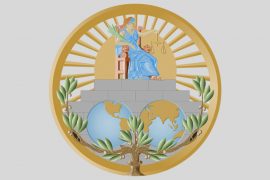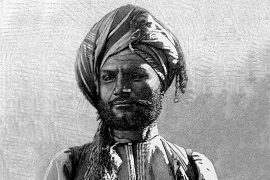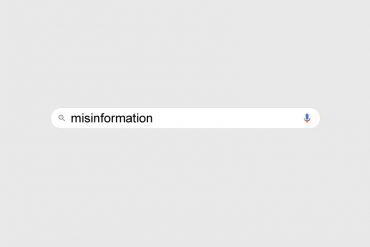‘There is but one truly serious philosophical problem, and that is suicide’, wrote Albert Camus, the French-Algerian existentialist, in his sensational essay, The Myth of Sisyphus. It is perhaps one of the most captivating opening lines in the history of world literature.
In Greek mythology, King Sisyphus was cursed by the gods for his deceitful, self-aggrandising ways. As punishment, the Gods commanded him to roll a huge boulder atop the hill. Once atop, they made him watch it pitiably roll down. He was thus condemned to repeat this task for all eternity in the depths of Hades.
The predicament of Sisyphus is tantamount to the cyclical helplessness of the human story in this world. Man experiences the Yin and Yang of life. He encounters good and evil incessantly and is forced to contend, ruefully, that the inexorable duality in human drama has no objective meaning and value.
Man is bombarded with random events in life at the most unexpected crossroads of his journey, which defies all rational and philosophical explanations. In ancient Greece, Aristotle built his worldview and philosophies with the premise that the universe has an inherent purpose and, therefore, life is intelligible and meaningful.
By employing the philosophical tool of rational epistemology, Aristotle and his mentor and teacher Plato, laid the foundations of ‘Classical Rationalism’ and established the Academy, the first university of the West. Wars, hunger, famine, geographical catastrophes, oppression and slavery, pandemics and plagues, conquests and inquisitions, death and oblivion throughout the ages have reiterated the dark mysteries of existence.
The more man perceived life as meaningless, the more he passionately and vigorously searched for its meaning. He cried out to the heavens for an answer, disheartened by the futile guidance of ‘Aristotelian Final Causes’ and ‘Platonic Ideas’ to comfort him and offer a coherent ideology of human deprivation and suffering. However, intensifying his despondency, all man heard was the deafening silence of the universe.
Albert Camus called this silence of the universe, The Absurd. He argued that life, seemingly, is without any purpose and meaning. Camus’ treatise on the Absurd also contradicts Wilhelm Hegel’s dialectical view of history as having a definitive purpose by consummating a final good through thesis, antithesis, and synthesis of events in societies and the world.
One could justify Hegel’s theory by pointing to the birth of communism as the synthesis of class conflict (antithesis) of the proletariat and oppressive (thesis) dominance of the bourgeoisie. However, two horrendous world wars, the Spanish Flu pandemic, regressive communist regimes of purges and gulags, economic depressions, widening social inequalities of capitalism, brutal genocides, ethnic cleansing, the rise of terrorism in the twentieth century, Tsunami and Covid-19 dispel myths of history’s atoning role in human affairs.
The absurdity of life becomes an inseparable part of man’s being when he is fully conscious of the universe’s indifference to our quest for meaning. This absurdity is reinforced and established neither because human lives nor the universe are emphatically devoid of meaning and purpose nor because God doesn’t exist. Still, a man realises that by his limited intellectual and rational faculties, its meaning cannot be deciphered. This limitation of human nature becomes a ‘known unknown’. Camus writes, “the myth is a tragedy because the hero is conscious”. Can suicide put an end to this human condition? Is it the most legitimate response and rebellion against the Absurd?
On confrontation with the Absurd, instead of killing oneself, many take a leap of faith by subscribing to an ideology. They become prisoners of new-age cults or members of religious sects, immerse in hedonistic pleasures and lead bohemian lives, follow godmen, or invent gods to suit their ignorance.
These plausible attempts to create meaning and make sense of a cold and unsympathetic world often leads to fresh disillusionment and despair. Such blind, escapist, and irrational endeavours are classified by Camus as “philosophical suicide.” He argues that committing physical suicide is better and honourable than retrogressing into a philosophical suicide by choosing to ignore grim realities for temporary solutions and fleeting consolations.
Though human beings cannot control their destiny and ascribe meaning to their apparently futile lives, they can own their fate. An unconditional acceptance and lucid embrace of the Absurd as the eternal adversary is the first step in driving a passion for life and existence.
A housewife, blue-collar worker or any employee doing repetitive tasks that are career, familial or social in contemporary society parallels the plight of Sisyphus and his condemnation. Like Sisyphus setting his sights on top of the hill, man is sentenced to eternally seek answers from above to his drab, monotonous life, however unfathomable those travails are.
“Life is not a problem to be solved, but a reality to be experienced,” enlightens Soren Kierkegaard, the Danish philosopher sage. The moment a human being is born in this world, he enters a covenant with the Absurd, which is the silence of the universe and honouring the pact of the covenant by man to seek meaning and purpose in a tumultuous world.
Suicide is breaking off that covenant and repudiation of the Absurd. The universe’s silence remains whether one commits suicide or not, since even after death, as in life, the universe will always be indifferent. Therefore, by committing the unholy act of suicide, man robs himself of the opportunity to fight for his freedom from the tyranny of silence of the universe or God and the pervasive meaninglessness of life.
Jean-Paul Sartre, the messiah of Existentialism, asserts, “Life begins on the other side of despair”. One cannot create purpose through destruction. Frederick Nietzsche, the iconoclastic nineteenth-century German philosopher, espoused the “Idea of Eternal Recurrence” to interpret the cyclical nature of human lives.
Man is condemned to relive the entire gamut of his emotions and feelings – happiness and sadness, pain and pleasure, tears and laughter – in an ‘eternal return’ throughout his lifetime and beyond. Even when he dies, another individual will take his place with the same set of attributes, sunshine and moonbeams, wind and rain, and this recurrence will happen infinite times across infinite spaces.
Like Sisyphus, man can never be dissociated from his daily ordeals. His existential rebellion for meaning against the Absurd is the foundation for building the desire to live and fight adversities.
You will never die by committing suicide. Finishing a life through the inglorious interruption of suicide doesn’t entail that it is complete. A race half-run by quitting is a disgrace to the spirit of the event. Suicide is nothing more than an eternal screech invading the melody of life.
Milan Kundera, the Czechoslovakian novelist, declares in his magnum opus, The Unbearable Lightness of Being, that “life moves in concentric circles,” and to recognise this principle is to understand that one should find joy and reconcile in the recurrence of dualities of life – good and evil. Only the overpowering weight of burdens of life pin man to the earth and make him truly human. Without the Absurd, a man is only half-real.
Camus dramatically illustrates that the moment Sisyphus is most interested is precisely after the stone rolls down the incline and describes it as the “hour of consciousness,” when he is “superior to his fate.” Camus concludes his brilliant essay with reassuring words:
The struggle itself towards the heights is enough to fill a man’s heart. We must imagine Sisyphus happy.
A man should will himself to be happy, for the joy of being human is to celebrate life in all its sounds, shades, and colours.
-30-
Copyright©Madras Courier, All Rights Reserved. You may share using our article tools. Please don't cut articles from madrascourier.com and redistribute by email, post to the web, mobile phone or social media.Please send in your feed back and comments to editor@madrascourier.com











